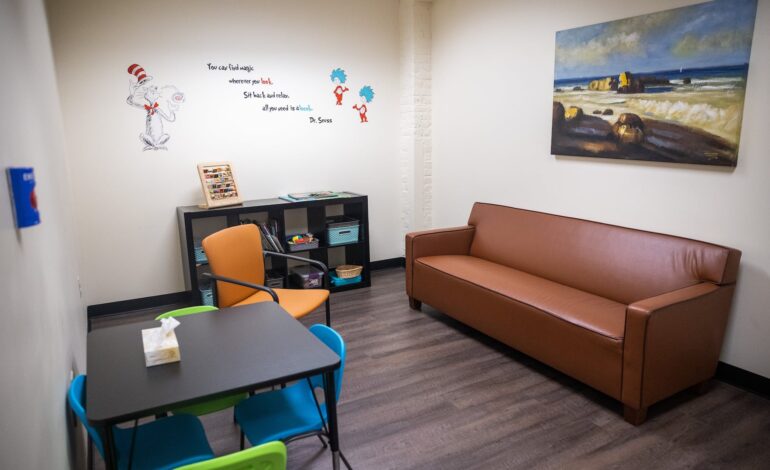Behavioral Health Network Expands Services Amid Mental Health Crisis

Behavioral Health Network (BHN) is undertaking a significant initiative to reduce wait times for mental health patients and expand its operations in response to what is being termed a mental health care “crisis.” According to Kathy Mague, senior vice president at BHN, the U.S. surgeon general has identified mental health as a public health crisis, emphasizing the necessity for accessible and trained staff to meet patient needs.
To address these challenges, BHN is currently in the process of hiring 75 new employees, increasing its workforce from 2,500. The organization is also enhancing its operational reach by establishing two new patient care centers, one in Springfield and the other in Boston, while acquiring control of six substance use disorder treatment centers in eastern Massachusetts.
BHN now operates 135 programs across 31 facilities in the state. Mague noted that the organization treated over 38,000 adults and children in the previous year, focusing on mental illness, substance use disorders, and developmental disabilities. “We anticipate adding 5,000 new patients with the new programs and expansion of current programs,” she stated.
BHN aims to provide same or next-day care for patients, a marked improvement compared to the lengthy waits experienced previously. Laura Toro-Nazario, a practice manager overseeing BHN’s expansion in Hampden County, highlighted efforts to extend operating hours, including late evening services and weekend appointments. She is also revising policies to streamline staff roles, striving for reduced wait times. “We are done with waiting lists,” Toro-Nazario affirmed. “We want to provide crisis services, medication management, and stabilization today.”
BHN recognizes the importance of training all staff, including administrative personnel, to ensure they are empathetic and effective in their roles. The organization employs multilingual staff, offering services in languages such as English, Russian, Spanish, Arabic, and American Sign Language, and utilizes on-demand language interpretation services to enhance accessibility.
The Massachusetts Medical Society reports that over 20% of adults in the state experience mental illness, with 5% having seriously contemplated suicide. Young individuals from historically marginalized communities, including Black American children and LGBTQ+ youth, are particularly at risk. Substance use disorder (SUD) affects approximately 10% of the Massachusetts population, highlighting the urgent need for effective treatment options.
Tony Boswell, a senior vice president at BHN leading the expansion of the substance use program, pointed out the ongoing challenges in addressing substance use disorders. “People are becoming addicted every day. Rest assured, the need is there,” he remarked. Despite efforts to provide immediate stabilization services, a leading association of providers in Massachusetts warns that many individuals may still face lengthy waits for ongoing treatment. Lydia Conley, president and CEO of the Association for Behavioral Healthcare, emphasized that those with Medicaid or commercial insurance may struggle to access timely treatment.
While BHN operates independently of federal grants, many clients rely on government assistance. Founded in 1938, BHN has experienced accelerated growth by forming partnerships and absorbing other providers. Mague explained that this business model promotes operational efficiencies and strengthens the organization amidst challenging circumstances.
“If we don’t continue to be strategic in the current fiscal climate, there are service providers who will not survive. Non-profit behavioral health organizations are at significant risk,” Mague stated. She highlighted the need for a shift in patient expectations regarding mental health care. “What community providers might be able to offer is group or peer therapy while you’re waiting for traditional therapy,” Conley added.
The behavioral health sector has long struggled with staff retention, and despite BHN’s hiring initiative, it faces a vacancy rate of 17%. The organization estimates it would need over 400 new employees to achieve full staffing. Low compensation rates, influenced by government regulations on service charges, complicate recruitment efforts.
Mague acknowledged the progress made in increasing compensation rates over the past five years but noted that turnover remains a significant challenge. “Pay is still not great, so turnover is almost a bigger problem than hiring people to do the hard work of caring for patients with complicated problems,” she concluded.
As BHN advances its mission to provide essential mental health services, the organization stands at the forefront of addressing a pressing public health crisis, aiming to transform the landscape of mental health care in Massachusetts and beyond.






